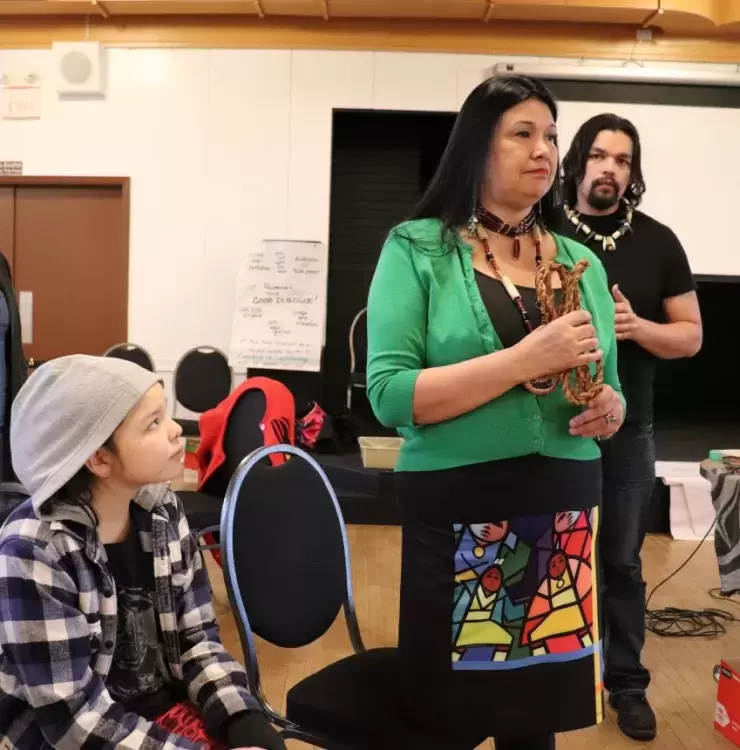A Tseshaht-led initiative to develop plans to address the opioid crisis began at Port Alberni’s Italian Hall at 4065 6th Avenue on Wednesday, Feb. 6.
With all the comments seen on Port Alberni’s public social media groups, organizer Gail P. Gus expected to see far more participants.
“I expected 250 people and that’s what we planned for,” she said.
Still, there were more than 40 people in the room from all walks of life that had one thing in common – they care.
Funded in part by First Nations Health Authority, Surviving the Flood is a gathering and workshop to find community-driven solutions for the opioid crisis in Port Alberni.
Besides members of the RCMP, there were front-line workers, political leaders from the local First Nations and concerned citizens in attendance.
“This is open to everyone,” said Gus.
Gus is passionate about helping to find solutions for families struggling with addictions and unresolved trauma. She shared with the crowd that she lost her only child to suicide.
“When we found him, he had a phone number in his pocket – it was the number of a known drug dealer,” she said.
She went to say that she was grateful for the 30 years she had with him.
“He taught my purpose,” said Gus.
She stressed that the war on drugs is not working.
“It is everywhere and everyone is affected,” said Gus. “Let’s talk about the elephant in the room – sexual abuse.”
She noted that people are forgiving churches and other entities, “we need to talk about it and forgive one another.”
Gus commented that addictions often have their beginnings in unresolved trauma.
NTC Harm Reduction Worker Gina Amos deals directly with homeless and addicted people.
“I’m here because I really care,” she said.
Many of the front-line workers that spoke shared personal stories of why they want to help. Most stories included losses of important family members.
A man named Mark pointed out that there is a lot of negativity associated with how people talk about addicts.
“Blame, disrespect and treating people like garbage is not the solution,” he said.
He asked the crowd to look to the light to find a solution.
“It may take a generation (to turn it around),” he added.
John Rampanen and Nitanis Desjarlias were invited to lead the discussions over the next two days. With teachings firmly rooted in Indigenous culture, John, Nitanis and their family bring the cultural component to help move forward in the search for solutions.
The Surviving the Flood event continues at the Italian Hall for the remainder of the day until 4 p.m. The event resumes on Thursday, Feb. 6 at 9 a.m., lasting until 4 p.m.
Lunch and refreshments are being provided and everyone is welcome.







